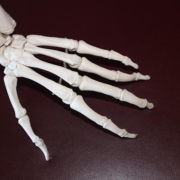MSK Health and Menopause: Managing Symptoms and Maintaining Strength
Menopause is a natural biological process that marks the end of a woman’s reproductive years. While it’s a normal part of aging, menopause can bring about a variety of changes in the body, some of which impact musculoskeletal (MSK) health. Understanding these changes and taking proactive steps can help you manage symptoms and maintain your strength and mobility throughout this transition and beyond.
Why Menopause Matters for Your Muscles and Bones
During menopause, your body produces less estrogen, a hormone that plays a crucial role in maintaining bone density and muscle mass. This decline can lead to:
Osteoporosis: Estrogen helps regulate bone breakdown. With less estrogen, bone loss accelerates, increasing the risk of osteoporosis, a condition that weakens bones and makes them more prone to fractures.
Muscle Loss: Estrogen also influences muscle growth and maintenance. Reduced estrogen levels can contribute to decreased muscle mass and strength, making you more susceptible to falls and injuries.
Joint Pain: Menopause can also lead to joint pain and stiffness, further impacting mobility and overall quality of life.
Taking Charge of Your MSK Health During Menopause
While the hormonal changes of menopause are unavoidable, there are many things you can do to protect your bones, muscles, and joints:
1. Nutrition for Strong Bones:
Calcium is Key: Aim for 1200 mg of calcium daily through foods like dairy products, leafy green vegetables, fortified foods, and supplements if needed.
Don’t Forget Vitamin D: Vitamin D helps your body absorb calcium. Get 600 IU daily through sunlight exposure, fatty fish, eggs, and fortified foods.
Limit Salt and Caffeine: Excess salt and caffeine can contribute to bone loss, so moderate your intake.
2. Exercise for Muscle and Bone Health:
Weight-Bearing Workouts: Engage in activities like brisk walking, dancing, or strength training that force your body to work against gravity, promoting bone density.
Strength Training is Crucial: Include strength training exercises 2-3 times per week, targeting all major muscle groups to maintain muscle mass and strength.
Stay Flexible: Regular stretching or activities like yoga and Pilates can improve flexibility, balance, and range of motion, reducing your risk of falls and injuries.
3. Lifestyle Modifications for Overall Wellbeing:
Quit Smoking: Smoking is detrimental to bone health and overall health. Seek support to quit if you smoke.
Moderate Alcohol Consumption: Excessive alcohol intake can weaken bones. Stick to recommended guidelines.
Prioritize Sleep: Quality sleep is essential for bone and muscle repair. Aim for 7-8 hours of restful sleep each night.
4. Talk to Your Doctor:
Discuss Hormone Therapy: If you experience severe menopausal symptoms, talk to your doctor about hormone therapy options and their potential benefits and risks.
Bone Density Testing: Your doctor may recommend bone density testing to assess your risk of osteoporosis and guide treatment if needed.
Staying Strong Through Menopause and Beyond
Menopause is a natural transition, not a roadblock to a healthy and active life. By understanding the potential impact on your MSK health and taking proactive steps through nutrition, exercise, and lifestyle modifications, you can manage symptoms, maintain your strength, and enjoy a vibrant future. Remember, it’s always a good idea to consult with your healthcare provider to create a personalized plan that meets your individual needs.









